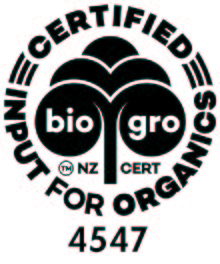Organic Planting
How to plant organically
AT A GLANCE
- Warm, sunny site
- Free draining soil
- Lots of compost
- Fertiliser: use animal manures such as pelletised sheep manure
- Plants: select strong, disease resistant varieties
- Pesticides: use low toxicity, environmentally friendly pesticides
Recently, the boundaries between ‘conventional’ and ‘organic’ gardening have become blurred as ‘conventional’ gardening adopts more of the sustainable principles of the organic way and ‘organic’ gardeners recognize that some natural pesticides are more toxic than synthetic ones.
Hence today’s natural organic gardeners use all the proven, good garden practices of composting, mulching, crop rotation. Regular foliar feeding and addition of animal manures will increase soil fertility and provide extra nutrition.
They also select plants and varieties more suited to the soil, climate and season to ensure best results.
Soil
The key to organic gardening success is a good soil. The main function of soil is to hold a reserve of nutrients and water for plants. A good soil is one that holds nutrients and water in a manner in which plant roots can extract them easily. To do this soil should be open, aerated and drain freely of surplus water. However at the same time it should hold ample water for plants.
To do all this the soil should be high in organic matter - i.e. compost or similar material. Hence the basis of organic gardening is to have a soil with lots of compost. Compost needs to be added every year to maintain the soil in good condition.
Composting
Compost can be purchased in bags or you can make your own. Making your own not only provides an ongoing supply of compost but it also gets rid of most garden and kitchen waste.
Crop Rotation
This is an old, well proven means of avoiding disease build up in the soil. It is used in the vegetable garden and the annual flower garden.
If the same crop e.g. tomatoes if grown in the same soil every year the plant health and yield will decline to a point where it is not longer worthwhile. This is because soil fungus diseases specific to that crop, build up to a high level and suppress growth.
This problem can be avoided by rotating crops around the garden, so that any one type of crop is only grown in any one area for one year in four. The product groups are:
Brassicas and leaf veges – Cabbage, Cauliflower, Broccoli, Brussels Sprouts, Swede, Turnips, Silver Beet, Lettuce.
Legumes – Peas, Beans, Broad Beans.
Root Crops – Potatoes, Carrots, Parsnips.
Miscellaneous – Tomatoes, Cucumber, Zucchini, Pumpkins, Sweet Corn.
Fertiliser
Organic gardeners use predominantly animal manures, such as pelletised sheep manure, to provide additional feeding for plants. A high level of use of compost and animal manure will lead to an increase in soil acidity. It is therefore advisable to apply an annual dressing of Lime or Dolomite at about 300gm/sq metre. Foliar feeding vegetables and herbs provides valuable nutrients to increase plant health.
Pest and Disease-resistant Plants
An important tool for the organic gardener is to grow predominantly pest and disease resistant plants. There are a range of plants in all categories of gardening that are relatively resistant to major pests and diseases. Organic gardeners should focus on these species and varieties. Ask your Garden centre advisor for help.
Pest and Disease Control
The organic gardening practices outlined in this brochure will minimize pests and diseases. However there are still some problem pests and many plants that are commonly attacked. The following products are recommended for organic growers. Regular checks to observe pest and disease attacks and subsequent control will result in pest or disease being controlled more effectively.
The following is a list of Bio Gro certifies Organic treatments. 
Insecticides
Fungicides
Weed Control
Pruning
Warning—Caution: Many organic remedies, sometimes recommended, are NOT registered or proven. Some are extremely toxic – for example, do NOT use Neem Oil on food crops. Check out our ‘Fruit Pest and Disease Control’ article for the organic or environmentally friendly products that are approved.
3614